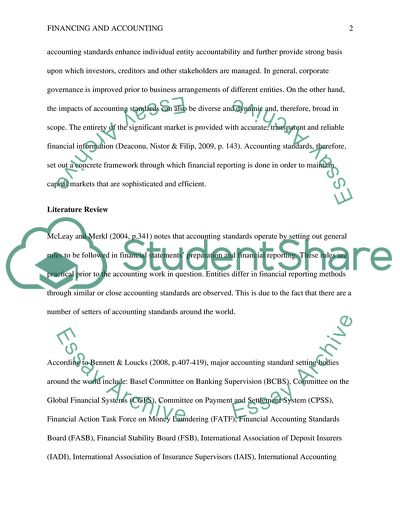Cite this document
(Standard Setting in Accounting Essay Example | Topics and Well Written Essays - 2000 words - 1, n.d.)
Standard Setting in Accounting Essay Example | Topics and Well Written Essays - 2000 words - 1. Retrieved from https://studentshare.org/finance-accounting/1768312-critically-examine-and-discuss-the-approaches-to-standard-setting-in-accounting-illustrate-the-application-of-such-approaches-your-analysis-with-relevant-examples
Standard Setting in Accounting Essay Example | Topics and Well Written Essays - 2000 words - 1. Retrieved from https://studentshare.org/finance-accounting/1768312-critically-examine-and-discuss-the-approaches-to-standard-setting-in-accounting-illustrate-the-application-of-such-approaches-your-analysis-with-relevant-examples
(Standard Setting in Accounting Essay Example | Topics and Well Written Essays - 2000 Words - 1)
Standard Setting in Accounting Essay Example | Topics and Well Written Essays - 2000 Words - 1. https://studentshare.org/finance-accounting/1768312-critically-examine-and-discuss-the-approaches-to-standard-setting-in-accounting-illustrate-the-application-of-such-approaches-your-analysis-with-relevant-examples.
Standard Setting in Accounting Essay Example | Topics and Well Written Essays - 2000 Words - 1. https://studentshare.org/finance-accounting/1768312-critically-examine-and-discuss-the-approaches-to-standard-setting-in-accounting-illustrate-the-application-of-such-approaches-your-analysis-with-relevant-examples.
“Standard Setting in Accounting Essay Example | Topics and Well Written Essays - 2000 Words - 1”, n.d. https://studentshare.org/finance-accounting/1768312-critically-examine-and-discuss-the-approaches-to-standard-setting-in-accounting-illustrate-the-application-of-such-approaches-your-analysis-with-relevant-examples.


